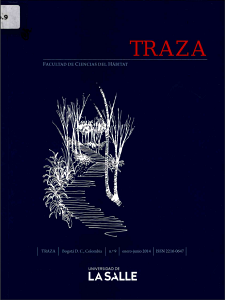Abstract
Citizen participation is essential when dealing with the concept of comprehensive neighborhood improvement programs (PMIB, for its initials in Spanish), which can be detected, in the case of Colombia, through different organizations as tools to define and implement improvement projects. The PMIB include comprehensive action processes to solve the social and physical needs that depend on the sustainability of different phases in participation processes attracting appropriation dynamics due to self-management processes for decades. The PMIB have created a system for solving urban issues, particularly from vulnerable contexts, as they provide a more effective comprehensive attention to some traditional conceptions of “land to land” improvement that have focused only on offering public and housing services. This article reviews the experiences of five case studies from different neighborhoods in Colombian cities: Moravia, Medellín; Nueva Esperanza, Leticia; Caminos de San Silvestre, Barrancabermeja; Nueva Colombia, Florencia, and Bello Horizonte, Pereira.Downloads
Download data is not yet available.



